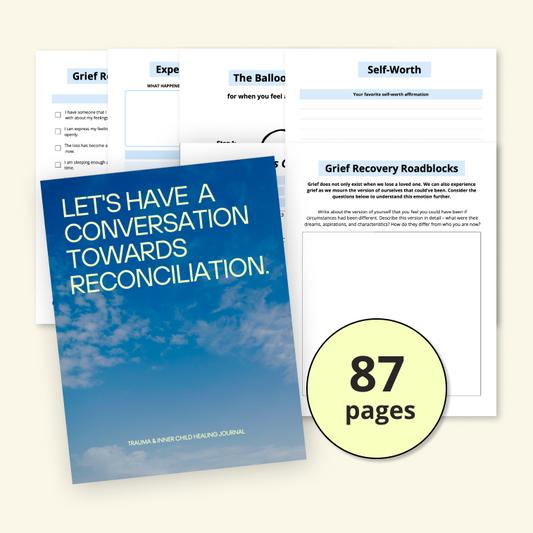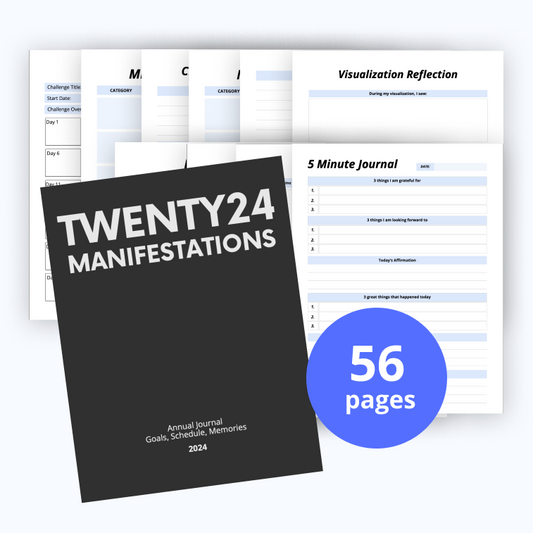Living with Social Anxiety Disorder (SAD) can feel like you’re constantly walking through a maze without an exit.
It’s that flutter in your stomach before a social event or the pounding of your heart when you’re about to speak in public.
But what if you could find a roadmap to navigate this maze with ease?
That’s exactly what coping strategies for SAD offer. They’re like a comforting hand guiding you through challenging moments, ensuring you’re not alone.
Embracing these strategies doesn’t just mean managing your anxiety; it’s about reclaiming your joy in social situations.
Imagine attending a party or a meeting without that familiar wave of panic.
With the right tools and techniques, this can be your reality.
Let’s explore how you can transform your approach to social interactions, turning fear into freedom and anxiety into assurance.
Understanding Social Anxiety Disorder
Imagine walking into a room and feeling like everyone’s eyes are glued to you, judging your every move.
That’s a day in the life with Social Anxiety Disorder (SAD), a condition far more intense than just shyness. It’s like having a hyper-alert alarm system that goes off at the mere thought of social situations.
But hey, you’re not alone. Millions navigate this maze, trying to find a way to silence the alarm.
So, What Exactly Is Social Anxiety Disorder?
SAD is a mental health condition where social interactions cause irrational anxiety, fear, and embarrassment.
It’s not just about feeling awkward at parties; it’s the fear of being scrutinized and negatively judged by others in daily social situations.
Think of it as a constant battle between wanting to connect with others and fearing the spotlight.
Symptoms to Watch Out For
Here’s what you might experience if you’re dealing with SAD:
- Excessive worrying about upcoming social situations
- Fear of talking to strangers
- Sweating, trembling, or blushing in social settings
- Avoiding social gatherings altogether
It’s tough, right?
But recognizing these signs is your first step towards managing SAD.
What Causes Social Anxiety Disorder?
While the exact cause isn’t known, a mix of genetic and environmental factors plays a role.
Perhaps it’s in your genes, or maybe a past social trauma left its mark.
Understanding the triggers is crucial. It helps you navigate the social maze with a bit more ease.
Armed with this understanding, you’re better prepared to explore the coping strategies that can turn scary social situations into manageable moments. Don’t forget, it’s about preparing, not avoiding.
Whether it’s breathing techniques, guided journals like those from Wholesome, or seeking professional help, there are tools and techniques designed to guide you through the social labyrinth.
Common Triggers of Social Anxiety
Feeling like you’re under a magnifying glass in social situations?
You’re not alone.
Social Anxiety Disorder (SAD) can make mingling feel like you’re walking a tightrope.
Let’s get real about what sets off this high-wire act.
Public Speaking: The Ultimate Showdown
Let’s face it: speaking in public can feel like you’re doing a solo at the Super Bowl halftime show — naked.
It’s the top trigger for social anxiety.
Why? Because all eyes are on you, waiting, watching.
Your brain goes into overdrive, imagining every possible way it could go wrong.
But here’s a secret: most folks are too wrapped up in their own stuff to judge your every word.
Meeting New People: The Social Gauntlet
Ah, the joy of meeting new people, or as your anxiety calls it, the obstacle course from hell.
Will they like me?
What if I say something weird?
Take a deep breath.
Everyone’s a bit nervous at first. It’s not just you.
Being the Center of Attention: The Unwanted Spotlight
Suddenly, you’re the star of the show – except you didn’t audition for this part. When all eyes are on you, it feels like your every flaw is under scrutiny.
Spoiler alert: people are generally too busy thinking about their own insecurities to zero in on yours.
Social Gatherings: The Party Pressure
Parties should be fun, right? Well, not if your mind turns every invitation into a pop quiz on social skills.
The noise, the crowd, the small talk — it’s overwhelming.
But here’s something to keep in mind: it’s perfectly okay to step away and take a breather when you need it.
Don’t forget, understanding these triggers is step one on your journey toward managing social anxiety.
With tools like guided journals from Wholesome, you can start to unravel these anxiety knots. They’re like having a chat with a friend who gets it, helping you reflect and navigate through those social mazes.
No judgement, just support.
Ready to kick social anxiety to the curb? Your guided journal is the sidekick you didn’t know you needed.
Let’s tackle this together, one page at a time.
Importance of Coping Strategies
When you’re dealing with Social Anxiety Disorder (SAD), finding the right coping strategies can feel like hunting for that one clean sock in a mountain of laundry.
Coping strategies are your toolbox for when social interactions feel more like exploring a minefield rather than mingling at a party.
First off, why are these strategies so darn important?
Well, they’re your first line of defense against the sweaty palms, racing heart, and the overwhelming urge to bolt for the nearest exit when faced with social situations that others might breeze through.
Think of them as your personal set of skills and techniques designed to manage the anxiety, fear, and stress that come with social anxiety.
Wholesome is here to throw you a lifeline with our guided journals.
These aren’t your average journals. Imagine them as your quirky sidekick in the epic quest to conquer social anxiety.
Our journals are here to listen, offer guidance, and won’t judge if you doodle in the margins.
They encourage reflection, help identify triggers, and track your progress over time. It’s like having a chat with a friend who’s really into helping you discover the best version of yourself.
But let’s get real for a moment.
Coping strategies aren’t a one-size-fits-all deal.
What works wonders for one person might not cut it for another. That’s why it’s crucial to have a variety of strategies in your arsenal.
Whether it’s deep breathing, visualization techniques, or challenging negative thoughts, there’s something out there for everyone.
And yes, that means you too.
Engaging with Wholesome’s guided journals can be a game-changer. It’s about giving you a structured way to explore what techniques work best for you, setting goals, and tracking improvements.
Plus, they’re digital, so no worries about losing them under your bed or having your dog decide it’s their new chew toy.
Don’t forget, managing social anxiety is a journey, one step at a time.
With the right coping strategies and tools like Wholesome’s guided journals, you’re well on your way to exploring social situations with more confidence and less dread.
Practical Coping Techniques
Let’s get real about dealing with Social Anxiety Disorder (SAD).
It’s like trying to tune into a radio station but only catching static whenever you’re around people.
Annoying, right?
Well, you’re in luck. Here are some straightforward, effective strategies that can help you fine-tune your social skills and dial down the anxiety.
Break It Down
First off, start small.
Don’t leap into a crowded party or a bustling network event right away. That’s like trying to run a marathon without any training.
Instead, practice basic interactions in less intimidating settings.
Perhaps, chat with a barista or make small talk with a colleague. Bit by bit, these mini victories add up, and your confidence grows.
Challenge Those Thoughts
Your brain can be your worst critic. It’s time to show it who’s boss. Start questioning those negative thoughts.
Ask yourself:
- Is there evidence for this thought?
- Can I look at this situation in a different, more positive light?
- What would I tell a friend in this situation?
Questioning these thoughts helps to break down the walls built by anxiety.
The Power of Breathing
Never underestimate the power of a good, deep breath. When you’re feeling overwhelmed, take a moment to focus on your breathing.
Inhale slowly for 4 seconds, hold it for 7, then exhale for 8.
It’s like hitting the reset button on your body’s alarm system.
Embrace the Awkward
Guess what? Everyone has awkward moments.
Even that person who seems as smooth as butter on a hot day. Instead of fearing embarrassing moments, learn to laugh them off.
Awkwardness is part of the human experience. Embrace it.
Use Tools Like Wholesome’s Guided Journals
Wholesome’s guided journals aren’t just books; they’re your personal cheerleaders.
They offer a way to reflect, track your progress, and manage anxiety in a structured yet personal way.
Guided journals can help you:
- Identify triggers
- Set achievable goals
- Monitor improvements
Implementing these practical coping techniques isn’t an overnight fix. It’s about consistent practice and finding what works best for you.
Don’t forget, it’s okay to have setbacks.
What’s important is that you keep pushing forward. With each step, you’re not just coping — you’re thriving.
Seeking Professional Help
When your social anxiety feels like a giant backpack of bricks you’re lugging around, it might be time to lighten the load by seeking professional help.
You wouldn’t try to fix a leaky faucet with a rubber band and some hope, right?
Tackling social anxiety can be similar; sometimes, you need the right tools and a skilled hand to guide you.
Why Consult a Professional?
You’re not admitting defeat; you’re enlisting a co-pilot.
Licensed therapists or psychologists specialize in mental health, and they’ve seen it all.
They’re like the navigators of the mind, helping you chart a course through what feels like an endless storm of anxious thoughts and social fears.
Their expertise allows them to offer individualized strategies and support that books or online forums can’t exactly match.
What to Expect
Visiting a therapist might seem as daunting as a squirrel at a dog show, but it’s actually a step toward taking control.
During your sessions, they might use approaches like:
- Cognitive Behavioral Therapy (CBT): Changing the way you think to alter how you feel and behave.
- Exposure Therapy: Gradually and safely facing what frightens you until it doesn’t.
These methods aren’t just fancy jargon; they’re road-tested ways to help you manage social anxiety effectively.
Online Therapy Options
In today’s world, therapy is as close as your smartphone.
Online therapy platforms connect you with licensed professionals through video, chat, or phone. It’s therapy in your PJs, without having to navigate the outside world just yet.
Wholesome’s Role
And here’s where Wholesome fits into your journey. Our guided journals are like having a personal mini-therapist in your pocket (minus the degree).
They’re designed to complement your professional therapy sessions, giving you a space to reflect, practice coping strategies, and monitor your progress.
Think of it as the cherry on top of your mental health sundae.
Next Steps
Overcoming social anxiety is a journey that requires the right support and tools.
Don’t forget, you’re not alone in this fight. With professional guidance and personalized strategies, you can navigate through the challenges of Social Anxiety Disorder more effectively.
Incorporating resources like Wholesome’s guided journals alongside therapy can significantly enhance your ability to manage anxiety. It’s about taking small steps towards bigger changes.
So, take that step today towards a more confident and less anxious you.




